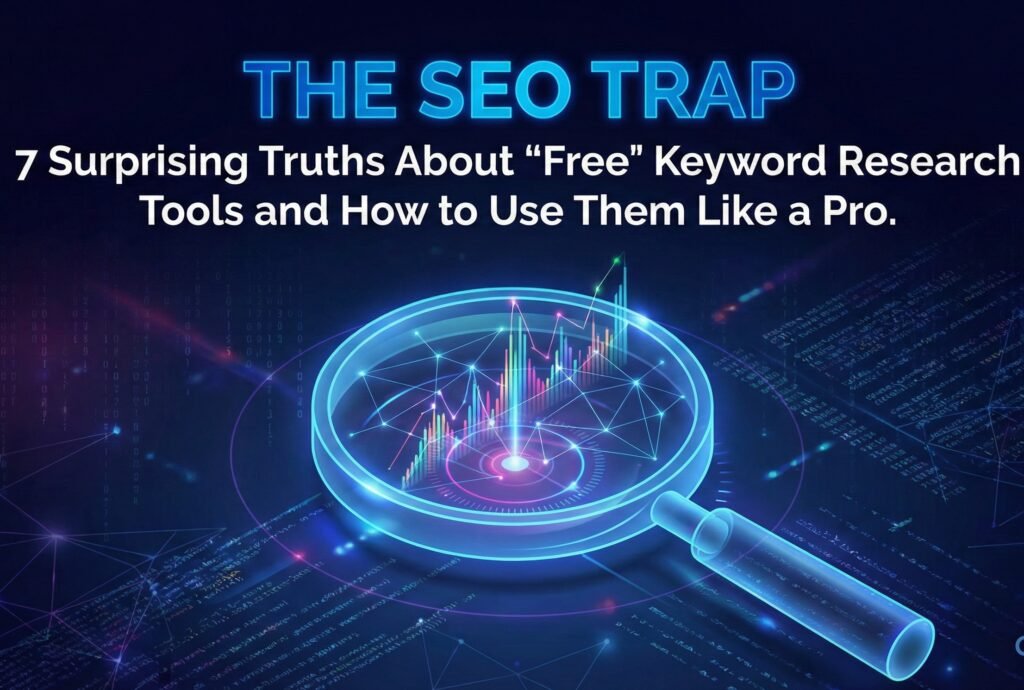LSI Keywords have been touted as a method to boost a page’s ranking for specific terms by incorporating them into the content. However, this article clarifies that LSI Keywords, as they are popularly understood in the SEO community, are a myth.
LSI or LSI Keywords or Latent Semantic Analysis, as it is called itself, is a legitimate mathematical method developed in the late 1980s for indexing and retrieving information by identifying relationships between words in a corpus of text. Despite its real applications, the concept of using “LSI Keywords” for SEO optimization is not grounded in the technology’s original purpose or functionality.
In fact I would go so far as to say that inserting LSI keywords into any text does not mean you’re optimizing it for search, but are doing it at the risk of making the text unreadable.
There are a few different methods of on-page optimization that are proven to work because they are far superior to using LSI keywords. You can check out my article on connecting ChatGPT to Live Google Search if you want to analyze live results for LSIs.
The Myth of LSI Keywords in SEO
The myth of LSI Keywords in SEO has persisted despite clear evidence and statements from Google that debunk its validity as an optimization strategy. This myth is rooted in a misunderstanding of Latent Semantic Indexing (LSI), a technology developed in the late 1980s for improving information retrieval by understanding the relationships between words in a document. Over time, some SEO practitioners and toolmakers have mistakenly promoted the idea that incorporating specific “LSI Keywords” into web content can directly influence a page’s ranking in search engine results. And they have made a bucket of money touting it!
The misconception lies in the belief that search engines, particularly Google, use LSI technology to analyze web content and determine its relevance to search queries. However, Google has clarified through various communications that its algorithms do not rely on LSI but rather on more advanced and nuanced methods of understanding content and context. The search giant employs a complex mix of algorithms and technologies, including Natural Language Processing (NLP) and machine learning, to interpret the meaning of web pages and their relevance to specific search terms.
This myth has led to the proliferation of SEO tools and services that claim to identify LSI Keywords for content optimization, often misleading marketers and content creators into focusing on these supposed silver bullets. In reality, these so-called “LSI Keywords” offer no special advantage in SEO and distract from the more effective practices of creating high-quality, relevant content that genuinely serves the user’s intent.
Understanding the myth of LSI Keywords is crucial for SEO practitioners who aim to employ evidence-based strategies. Instead of chasing after mythical shortcuts, focusing on proven SEO practices—such as keyword research, user intent understanding, and content quality—is essential for achieving sustainable and effective search engine visibility.
Alternatives to LSI Keywords
Well, there are a few different alternatives to using LSI keywords. In fact, when I start a monthly SEO contract, I often begin with on-page optimization. Usually, the previous SEO company did a poor job and that’s one of the reasons my new client wasn’t doing so well. 9 out of 10 times, I see LSI keywords thrown in without having any sense of the entity being optimized! You can read my guide on Entity SEO to find out more about this.
Phrase-Based Indexing: A Closer Look
Phrase-based indexing is a sophisticated method that Google has developed and refined over the years. It involves analyzing the co-occurrence of phrases within documents to understand the context and relevance of a page better. This method is based on the premise that certain phrases tend to appear together within the content that is relevant to specific topics or subjects. By identifying and incorporating these phrases into your content, you can signal to Google the relevance and context of your page more effectively.
For instance, if you’re optimizing a page for the term “sustainable gardening,” phrase-based indexing suggests that including related phrases such as “composting methods,” “drought-resistant plants,” and “organic pest control” could improve the page’s relevance and ranking for the target term. These co-occurring phrases help Google’s algorithms understand that your content provides comprehensive coverage of the topic, thereby increasing its perceived value to users searching for information on sustainable gardening.
Implementing phrase-based indexing requires thorough research to identify the phrases that are most relevant and frequently co-occur with your target keywords. Tools like Google’s own Keyword Planner and studying re-occurring phrases in SERPs (as discussed in the video) can aid in this research by providing insights into related phrases and their search volumes. Incorporating these phrases naturally into your content can enhance its relevance, readability, and search engine visibility.
Domain Terms: Enhancing Contextual Understanding
The use of domain terms is another effective alternative to LSI Keywords, focusing on the specific context in which terms are used. This approach is particularly useful for terms with multiple meanings across different contexts or domains. By identifying and including domain-specific terms in your content, you can clarify the intended meaning and relevance of your page to search engines.
For example, the term “jaguar” can refer to an animal, a car brand, or even a sports team, depending on the context. If your content is about the animal, including domain terms like “habitat,” “conservation,” and “predators” can help search engines understand that your page is relevant to zoology and wildlife, not automobiles or sports.
This strategy requires an understanding of the subject matter and the ability to identify terms that are uniquely associated with your domain. Knowledge bases such as Wikipedia and industry-specific publications can be valuable resources for finding relevant domain terms. Including these terms in your content not only improves its search engine relevance but also enhances the user’s understanding and engagement with the material.
Conclusion
In conclusion, the myth of LSI Keywords serves as a reminder of the importance of basing SEO strategies on accurate, up-to-date information and understanding the actual mechanisms search engines use to index and rank content.
By adopting the alternatives suggested in the article, such as phrase-based indexing and the use of domain terms, SEO practitioners can achieve better results in a way that aligns with Google’s guidelines and the fundamental principles of providing valuable, relevant content to users.






